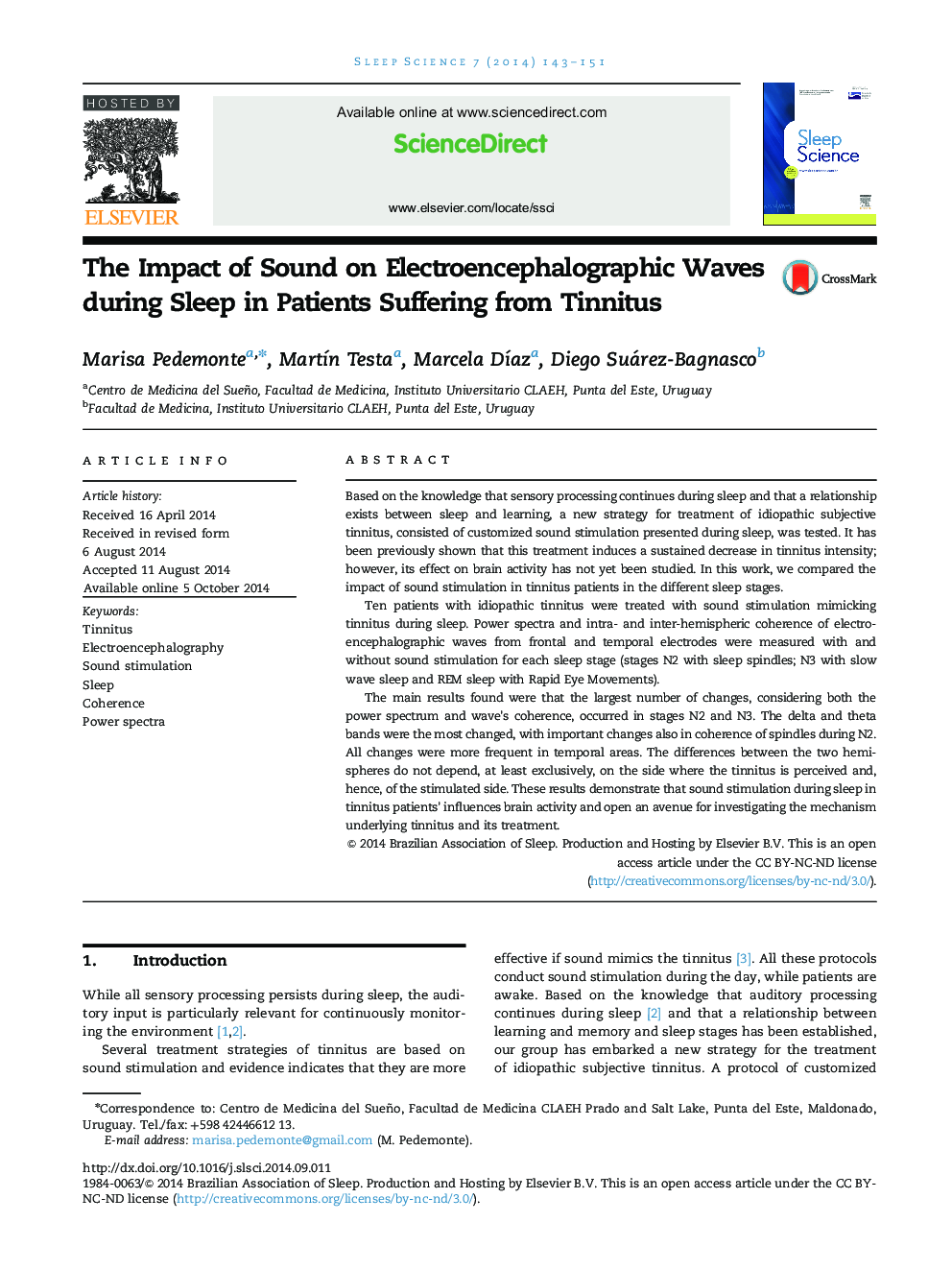| کد مقاله | کد نشریه | سال انتشار | مقاله انگلیسی | نسخه تمام متن |
|---|---|---|---|---|
| 3026654 | 1182916 | 2014 | 9 صفحه PDF | دانلود رایگان |
Based on the knowledge that sensory processing continues during sleep and that a relationship exists between sleep and learning, a new strategy for treatment of idiopathic subjective tinnitus, consisted of customized sound stimulation presented during sleep, was tested. It has been previously shown that this treatment induces a sustained decrease in tinnitus intensity; however, its effect on brain activity has not yet been studied. In this work, we compared the impact of sound stimulation in tinnitus patients in the different sleep stages.Ten patients with idiopathic tinnitus were treated with sound stimulation mimicking tinnitus during sleep. Power spectra and intra- and inter-hemispheric coherence of electroencephalographic waves from frontal and temporal electrodes were measured with and without sound stimulation for each sleep stage (stages N2 with sleep spindles; N3 with slow wave sleep and REM sleep with Rapid Eye Movements).The main results found were that the largest number of changes, considering both the power spectrum and wave׳s coherence, occurred in stages N2 and N3. The delta and theta bands were the most changed, with important changes also in coherence of spindles during N2. All changes were more frequent in temporal areas. The differences between the two hemispheres do not depend, at least exclusively, on the side where the tinnitus is perceived and, hence, of the stimulated side. These results demonstrate that sound stimulation during sleep in tinnitus patients׳ influences brain activity and open an avenue for investigating the mechanism underlying tinnitus and its treatment.
Journal: Sleep Science - Volume 7, Issue 3, September 2014, Pages 143–151
